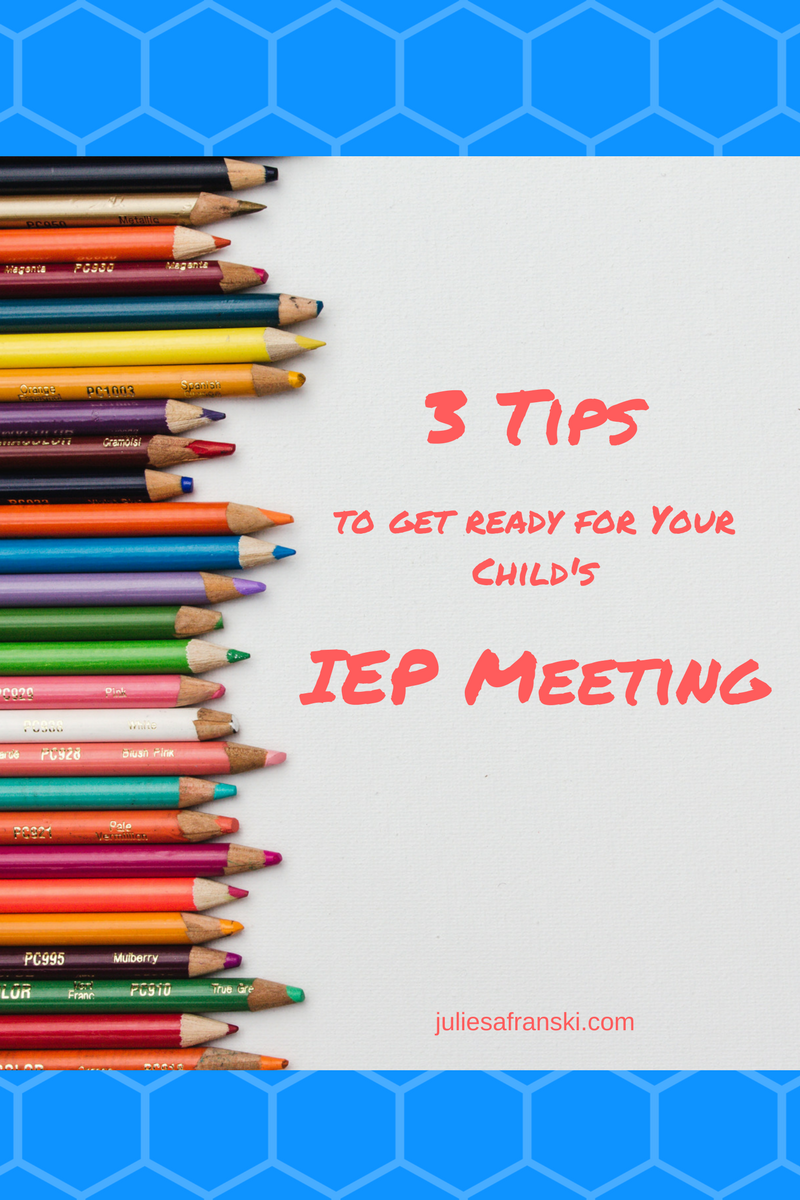For those parents who have children that receive special education services and have an Individual Education Program (IEP), a meeting is scheduled on a yearly basis. But often parents go into the meetings feeling unprepared and wondering if the school is meeting the needs of their child. Besides your child, you are the most important member of the IEP team and your input is essential in helping to create the legal document. Here are some tips for you to consider before attending the meeting:
Look over the current IEP and determine what services are currently provided for your child.
This may sound very basic but the IEP document is very complicated and not clearly written for the layperson. By the time the next annual review rolls around, often parents have forgotten how many direct and consultative minutes their student is receiving during the school day or over the course of the week. It is important to know how that impacts your child day-to-day and how it contributes to their overall schedule. How many minutes are they in the regular education setting versus specialized instruction outside the classroom? For instance, your child may leave the classroom for an hour a day for reading instruction or get their needs met by a special education teacher consulting with the regular education teacher. What areas have been identified as needs? Your child has identified reading and math needs but now seems to be struggling with writing at home. Parents often think reading and writing services are automatically addressed together. Does your child receive any related services and for how many minutes a week (speech/language, social work, occupational therapy etc.)? Your child may get social work services for social problem solving but now he is getting more disciplinary actions (detentions, suspensions). A different goal may be appropriate or more services need to be provided. Unless you know what the document says, it’s hard to advocate for current needs of your child and to determine the next course of action.
Determine your areas of concern and let the case manager know before the meeting the issues you would like to have discussed.
The case manager will be contacting you to let you know about the scheduled IEP meeting either through email, mail and/or a phone call. At that time or soon thereafter, letting the case manager know your particular concerns (e.g. Will Abby be able to have extended time on the PARCC?) will help the IEP team to address your questions ahead of time so they are ready to discuss them at the meeting. Often there is so much to cover during the IEP meeting and time is limited so creating the focus will get your questions answered in an effective, timely manner. Also, it demonstrates to the team that you are going to be an active participant that has a working understanding of what the IEP currently states.
Think about what you would like to see for your child for the future.
Often this question is an afterthought at meetings. We are so focused on the day-to-day details and how to get the child through the school day, we do not think about their future particularly in the younger grades. Is your goal for your child to have the least amount of special education services by a certain grade level (i.e. high school)? Or is your focus having child developing the most independence in the community (i.e.. is able to make a purchase at a store independently without adult assistance)? Do you see your child attending community college, a university, a sheltered workshop, attending a transition program or working a job after high-school? Of course, your goals for your child are based on your child’s intensity of needs but thinking about the long-term will help to drive the IEP’s overall focus. Transition services do not legally have to be discussed until 14 years old and a plan is formally created starting at 16 years old. But it’s never too early to be thinking about how you can better prepare your child for independence no matter what are their level of needs.
Julie Safranski, LCSW is Chicago psychotherapist. She also holds Professional Educator License (PEL)-School Social Worker endorsement (Type 73) for the State of Illinois and has 15 years experience in special education. She can be reached at js@juliesafranski.com.
